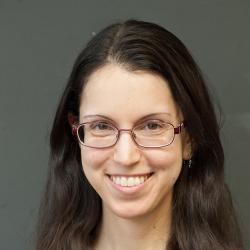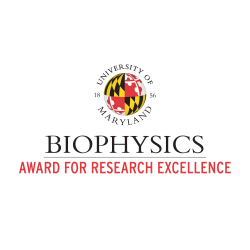Wendell Hill Named Director of Chemical Physics
IPST Professor Wendell T. Hill, III has been appointed director of the Chemical Physics program in the Institute for Physical Science and Technology (IPST), effective July 1, 2020.
“As a long-standing interdisciplinary program on campus – unique in the country in some aspects – the Chemical Physics Program has supplied top-notch graduate students to a number of STEM research efforts across campus and neighboring national facilities. Some students have gone on to become leaders in their field. I want to acknowledge the efforts of previous directors in building a program of distinction. My aim as director is to pursue excellence on all fronts while working to enhance diversity among students, increase synergy among the CHPH faculty and students, and engage our alumni in the educational experience.”
“I am excited to welcome Dr Wendall Hill to the role of Director of the Chemical Physics Program” said Konstantina Trivisa, Director of IPST. “Wendall has made invaluable contributions to the program over the years as Associate Director of the Program, inspiring advisor to Chemical Physics students and major research contributor in the field. I anticipate that under his leadership the Chemical Physics Program will thrive, increase its visibility and national standing and continue to attract excellent students to our campus.”
Attracting students with degrees in chemistry, physics, mathematics or engineering, the highly selective Chemical Physics program provides graduate students with a rigorous academic foundation, research opportunities, and preparation for careers requiring expertise in both physics and chemistry. Faculty are drawn from numerous departments including Physics, Chemistry and Biochemistry, Mathematics, Materials Science & Engineering, and Atmospheric and Oceanic Science. Additional research opportunities are available under the auspices of the Joint Quantum Institute (JQI), a partnership between NIST and the University of Maryland.
Hill's recent research efforts exploit (i) ultracold atoms to study quantum fluids, (ii) attosecond pulses to probe correlated electron dynamics and (iii) electrons in the presence of super intense laser fields as a potential tool to investigate the quantum nature of the vacuum. He is a Fellow of the Joint Quantum Institute and Affiliate Professor of Physics whose honors include NSF Presidential Young Investigator, fellow of APS and the designation of Science Maker by the HistoryMakers; he currently serves on the Scientific Advisory Committee for the Centro de Lasers Pulsados in Spain and the Board on Physics and Astronomy for the National Academy.




